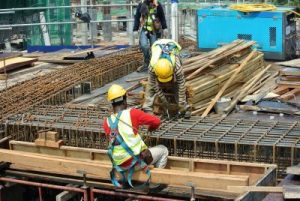Following some crucial rules and regulations can be essential for successfully completing your construction project if you’re a contractor. However, just like any other undertaking, construction projects involve some risks. Not only that but there can also be delays and other problems that may make the project fail. Due to this scenario, investors and project owners must be extra careful about their investments.
In that case, they require the project contractors to provide a construction bond as protection. It refers to a surety bond designed to safeguard investors and project owners from disruptions and financial losses caused by a contractor’s failure to complete the work as specified in the agreement. However, putting up a surety bond can be complicated and challenging if you have no idea what should be done in the first place.
Keep reading this article to learn the requirements for construction bonding.
How Does A Construction Bond Work?
To better understand how a construction bond works, it’s essential to familiarize yourself with the parties involved, which include the investor or project owner as the obligee, the contractor building, the construction project, and the surety company that backs the construction bond.
Aside from the parties, it’s also essential to know the different types of construction bonds. These can include:
- Bid Bond: It’s the bond submitted when bidding on potential construction projects. It safeguards the investor or project owner when the contractor backs out after winning the bid.
- Performance Bid: It’s the bond provided when the contractor accepts the bid and pushes through with the project. It protects the investor or project owner against financial losses if the contractor’s work isn’t according to the contract’s terms and conditions.
- Payment Bond: It’s known as the labor and material payment bond, which is used to ensure the contractor can pay for their workers, suppliers, and subcontractors.

As noted, a construction bond protects investors’ and project owners’ investments against an incomplete project or financial losses. It’s usually required in government/public work projects and other cost-intensive undertakings.
What Are The Construction Bonding Requirements?
Now that you’re aware of how a construction bond works, it’s time to know the requirements for construction bonding. However, it’s vital to understand that these requirements may vary depending on the surety company you work with and the project size. But despite the differences, below are the common construction bonding requirements that you should get familiar with:
- Steps For Acquiring A Construction Bond
Some steps should be taken from the beginning to apply for construction bonds properly. Otherwise, the contractor may be unable to place a construction bond for the project. The following are the steps for acquiring a surety bond:
- Review the project requirements to know if a construction bond is required;
- Secure a bid bond from the surety company and submit it with a proposal to the investor or project owner;
- If you, as the contractor, win the bidding, obtain a performance bid from the surety company;
- Once the bond is placed, you should proceed with the completion of the construction project;
- If necessary, provide a maintenance bond for the repairs.
With these steps, you can ensure to take the necessary construction bond for the project without sacrificing your investments if something might happen along the way.
- Essential Documents To Prepare
When applying for a construction bond, there are essential documents you need to prepare. These can include:
- Fully filled-out surety application;
- Financial statements for the past two years prepared by a certified public accountant;
- Copy of the project contract;
- Proof of real estate ownership to speed up the bond processing.
Knowing and preparing these documents can help you in your application process for a construction bond easier than not preparing ahead of time.
- Cost Requirements
Generally, there are cost requirements that should be taken into account when applying for a construction bond. For example, the cost of a performance bond is approximately 1% of the project value. But when the value of the project is approximately USD$1 million or more, the cost can range from 1.5% to 2%.
Moreover, it’s essential to know that your creditworthiness is considered when determining the surety bond’s cost.
- Miller Act For Federal Construction Projects
When it comes to federal construction projects, you have to get familiar with the construction bonding requirements under the Miller Act. Based on this act, the contractors for federal contracts are required to place a performance bond for a project which costs USD$100,000.
Also, federal contractors must place a payment bond to pay the suppliers. When the contractors fail to make the necessary payment, the suppliers may have the right to file a construction lawsuit before the U.S. District Court.
Conclusion
As a contractor, you should understand the need for placing a surety bond for large construction projects. Failure to provide a bond may cause the investors or project owners to walk away and look for other options. Hence, to successfully work on a project, keep the information mentioned above in mind to know the essential requirements for construction bonding.





























